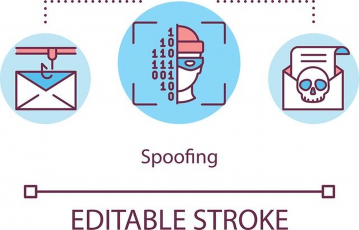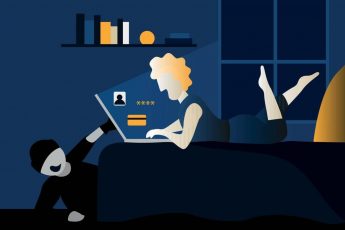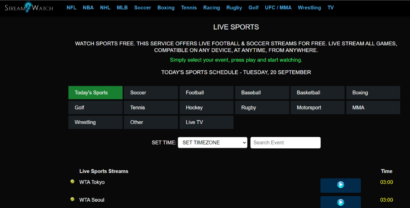As you reach this article, it’s pretty clear that you’re a privacy freak and want to block ISP tracking.
Certainly, you reserve the right to care about your privacy. Hence, the Internet Service Provider (ISP) should ideally limit its functionalities to provide you with internet connectivity.
However, in real-time, ISPs frequently cross their boundaries to the extent of tracking you. And, they have the liberty to log your data and then use it for whatever reason they want.
In short, you can hide your browsing history from your parents, your family, your teacher, or your employer. But, you cannot hide it from your ISP that not only tracks you but can also share your data with others.
Sounds scary, right?
Don’t worry because you can evade this unsolicited tracking by applying some simple methods. Here we guide you about how to block ISP tracking.
What can my ISP See and Monitor?
Your ISP is the core service that lets you connect to the online world. So, naturally, when you use their service, they have access to everything you do.
From the websites you visit to your connection timestamps, session history, browsing habits, and many more, ISPs know everything. Moreover, they not only track your data but also record and store it for their own specified time periods.
Many good internet service providers usually mention all these details – the data they track, log, and for how long – in terms and conditions.
But, a majority of users seldom read the terms and conditions of any service they use. Hence, they never know how and when a service turns its customers to its product.
So, if you want to know explicitly about how your respective internet provider tracks you, you should ideally visit their website and read the terms and conditions.
However, to save time and let you have a general idea, here’s a breakdown of the data ISPs track.
- The exact website URLs you visit
- All web pages you browse
- Log-in log-out time and duration of your online sessions
- Entire browsing history
- Your browsing habits
- All your shopping habits and history
- Unencrypted email chats
- Online search habits and history
- Passwords, payment information, and other details you enter while visiting unsecured (http://) web sites
- Files and torrent downloads
- P2P file shares
- Current geolocation
- Source IP address
- Destination IP addresses
- Cryptocurrency transactions
- Any other unencrypted communication, including social media information, images, texts, and voice messages
Why do I need to Block ISP Tracking?

When someone asks you to stop ISP tracking, you may wonder, why do that in the first place?
While we all know how governments actively track the public via ISPs, it’s no problem unless we do not perform any illegal activity.
Isn’t it?
Well, if that’s what you think, then we have to disappoint you.
ISP tracking isn’t about checking users for criminal activities; rather, things are worse.
At first, ISP monitoring is a privacy breach. As an independent internet user, you reserve the right to enjoy the internet the way you like (of course, within legal limits). So, it’s a pretty bad thing that your activities land at the hands of outsiders while you do everything to hide them from your kith and kin.
Secondly, since your ISP tracks you, it can share your data with your family, employer, or any other authority, upon request at any time.
Thirdly, your ISP is likely to share your data with third parties, such as various advertisers. So, you remain exposed to the risk of being barraged with personalized and non-personalized ads.
Lastly, learning ISP tracking escape is important if you’re a frequent traveler. While you can trust your own region’s ISP to have your data, why share it with every internet provider on the go? Do you trust foreign ISPs as well? What if the ISPs there have strict regulations? What if they have partnered with more aggressive advertisers? You will eventually land in hot water!
Not to forget about the bandwidth throttling issues you would face if you’re an avid gamer or streamer.
In short, if you wish to evade ISP search and tracking, there is nothing criminal or illegal in that. Rather, it’s your basic right to protect your privacy and data security.
What can my ISP do with the information it gathers?

As mentioned earlier, ISP tracking involves gathering a lot of data about you and from you. In turn, they use this data for various purposes, some of which you can’t even think of.
Below we list some of the most common and known reasons behind ISP tracking.
Sell data for money
Your ISP doesn’t really need your data. But they surely need money to run their service. (The fee you pay isn’t enough for them to survive and thrive.) So, they collect your data and sell it to the advertisers.
Though, the recent privacy regulations by the Federal Communications Commission (FCC) give some control to the users on this. They allow the users to direct ISPs to not share sensitive information, such as personal data, browsing history, mobile location, and alike, with advertisers.
Nonetheless, you remain vulnerable to data monetization as you cannot directly check whether your ISP is actually implementing your preferences or not.
Besides, while you can direct your own ISPs on this, you cannot instruct the foreign service providers. Also, you do not know about the advertisers and their marketing strategies in that location.
Apply censorship
Internet censorship is a common practice among many countries, China, Vietnam, Iran, to name a few. And it is only increasing further.
There could be various reasons behind such censoring. For instance, the governments’ preferences, violation of ethical and moral values of a region, hate speech, sensitive content, and more.
Naturally, to apply this censorship, the respective authorities would have to direct the ISPs to monitor internet traffic.
Wondering “can internet service provider block websites from its end?” The answer is, ‘they can’!
Even if a website ensures availability in your location from its end, your ISP can still block it at any time.
So, while your ISP may not have any personal gains, it would still spy on you because of the regulations.
Throttle bandwidth
Bandwidth throttling is another reason why ISPs track you and why you should get around this tracking.
Usually, ISPs claim to apply throttling to prevent network congestion and ensure optimum performance, especially during peak hours.
Nonetheless, this isn’t the only reason behind ISP throttling. Many service providers also deliberately slow down your connection speed to make you subscribe to higher packages.
For instance, when they notice that you are a gamer or frequently stream videos online, they know that you need high-speed internet. Thus, you are likely to climb up the packages and pay more to get the required speed.
Track torrenting
Another important ISP activity while tracking you online is to know if you are torrenting.
Although, torrenting isn’t illegal. Yet, many countries block torrenting for various reasons – the most important being piracy.
Since most torrent sites offer plagiarized versions of movies, premium software and games, and host malicious content, the governments require the ISPs to block such websites.
In case of an aggressive crackdown in place, torrenting may even land you in imprisonment for a few months to years.
Hence, smooth torrenting is another important reason to block ISP tracking.
Mandatory data retention as per laws
On top of everything, the main reason why ISPs track users is that the governments ask them to do so. Such data logging is important to trace cybercriminals or other investigations.
Though, this tracking eventually extends to innocent customers as well. Hence, seemingly everyone is being logged by service providers around the world.
But it doesn’t mean that your data will remain logged forever. Yet, for the time specified, ISPs have to keep such logs, ranging from few days to several years.
How do you tell if your ISP is monitoring you?

Well, there is no specific answer to this question. In fact, unless your ISP clearly specifies, you won’t ever learn how and for how long your ISP logs your activities.
Nonetheless, you may get an idea about it by observing the kind of ads you see, the promotional offers you get, or if you frequently experience slow speeds while gaming or streaming.
Even if you can’t observe these signs, you can still trust your ISP IS tracking you. So, you should do everything to stay under the radar if you care about your privacy.
How do I block ISP tracking me?
While ISPs employ various aggressive measures to track you, you can also get around this unnecessary snooping.
Although, doing so isn’t easy, and at times, not foolproof (except VPNs). However, these methods still protect you from unnecessary monitoring to a large extent.
Here we list some of the best ways to guide you on how to stop your internet provider from tracking you.
1. Use a VPN
When it comes to protecting your online privacy, VPN jumps in as the ultimate savior.

A Virtual Private Network, or a VPN, is a service that creates a ‘virtual network’ for you. It masks your online information with fake data to protect you from being tracked.
The main feature through which it succeeds in doing so is creating a fake IP. For this, it connects you first to its own servers to change your online location. Hence, when your data leaves its servers, you appear as someone present at the respective server location.
This happens regardless of your actual location. Consequently, your IP address also changes online according to that location.
In the case of ISP tracking, ISPs chase you online via your IP address. With a VPN, since your real IP address does not appear online, your ISP cannot track you.
Although, since you are using its service, your ISP would still get a hint of something happening at your end. But it can’t actually chase you. All it can see is a stream of gibberish data passing through its network. Thanks to the underlying VPN encryption that creates this phenomenon.
Nonetheless, to achieve the desired results, make sure you use a reputable VPN as your ISP blocker. Do not compromise your privacy by choosing a free VPN. Instead, only go with a top-notch premium VPN service.
2. Use web proxies
Using a web proxy is another useful method to escape ISP tracking.
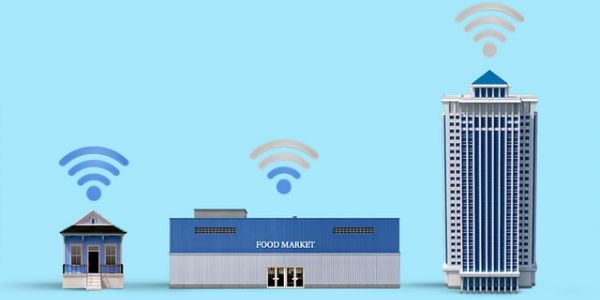
Like VPN, a web proxy also lets you change your online identity as you connect to proxy servers. Consequently, your real IP address does not appear online; rather, your proxy IP does.
Hence, your ISP is likely not to find you online as it won’t see your IP.
However, web proxies are not as feasible as a VPN. It’s because they lack several good features that a VPN possesses.
The first of these is the lack of encryption. While a VPN creates an encrypted tunnel to mask your data, web proxies don’t do that. Therefore, while your ISP may not see you precisely, it would still read the contents of your data.
For instance, if you download prohibited files or torrents using a web proxy, your ISP will detect it.
Moreover, not all web proxies are reliable. In most cases, you are likely to fall prey to malware attacks.
3. Use Tor browser
If you wonder how to hide browsing history from ISP, then the best strategy turns out to be Tor.
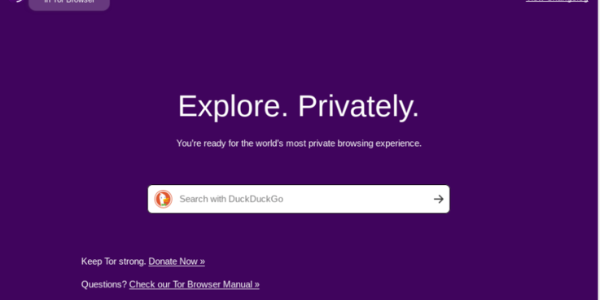
The Onion Router (Tor) browser is a useful project designed to help users achieve the desired level of online privacy. Upon download, Tor transforms your browser environment into an encrypted one. Plus, it also changes your IP address. But it works somewhat differently.
In brief, Tor creates an onion routing path for you as it connects to many different servers before letting you enter the internet world. Hence, you become invisible online. In turn, whatever you surf remains private to you only. That’s how it protects you from snoopers, hackers, and your ISP.
But remember, Tor only works best for keeping your browsing history safe from ISP tracking. It cannot hide your downloads.
So, if you ask us how to block ISP from seeing downloads, then Tor isn’t the answer. Rather you should use a VPN service for thorough security.
Read also: Most Secure Browsers
4. Browse HTTPS only
This is a habit that you should adopt as part of your browsing habits – use HTTPS only.
Whenever you browse websites, make sure you visit only those that have the HTTPS status. Your browser will depict the presence of HTTPS with a padlock sign. Or, you can click on the address bar to view the full URL, where you should see “https://” in the beginning.
But what makes HTTPS so important?
Well, HTTPS (Hypertext Transfer Protocol Secure) is a secure protocol that encrypts the data being transmitted between you and the corresponding website. In this way, it protects your data from cyber attacks as well as ISP.
Whereas, in the case of HTTP-only websites, your entire data remains visible to everyone online. So, not only the ISP, rather all snoopers and hackers also see your data, including sensitive details such as your credentials, credit card numbers, and more.
So, ideally, you should avoid using HTTP websites at all costs. But if it’s really something you can’t avoid, then use HTTPS Everywhere. It’s a dedicated browser extension that applies HTTPS security over every HTTP website you visit, hence protecting your privacy.
However, HTTPS isn’t a fool-proof strategy, rather a basic one. Although, it’s one of the best practices for safe browsing online. But if you want something to prevent your ISP from spying on you, HTTPS won’t help, though. While your ISP won’t see the contents of your data, it can still log the URLs you visit and your session history.
Does VPN stop ISP tracking?

If you think your VPN will command your ISP not to track you, this isn’t right. Perhaps, you may have seen the ‘Do not track’ feature in various web browsers that ask the websites not to track you.
However, a VPN doesn’t do anything like that. It cannot command ISPs to stop tracking.
BUT, what it does is even more powerful. It masks everything that an ISP can track with fake information.
Wondering what does a VPN hide? Well, it includes everything from masking your IP address to your location. So, when your ISP doesn’t find your IP address online, it can’t track what you do.
Also, a VPN encrypts all the data transmitted between your device and the network. So, what an ISP sees is the transmission of encrypted data only. It cannot get a hint of the actual data transferred between your device and the network.
In short, using a VPN is the only viable means to block ISP tracking.
Can my ISP Block my VPN?
Theoretically, it can because ISPs track your IP addresses. So, while they do not see your real IP address, they can still see the VPN’s IP address. Thus, even if they can’t see your data, they can figure out that you have applied a method to change your online existence.
Hence, upon detecting your VPN’s IP address, they can identify the VPN service you use and can subsequently block it.
However, doing something like this in real-time isn’t possible. It’s because the procedure depends on the VPN protocol.
For instance, the PPTP is the easiest to block as it uses GRE packets and works on only one port. Thus, any firewall can block this port to block PPTP altogether.
However, other protocols are rather difficult to block. For example, the OpenVPN protocol works over arbitrary ports and can use either TCP or UDP. Thus, it becomes difficult for an ISP to block this protocol.
So, while an ISP can block your VPN (you will figure this out if you cannot connect to the internet via VPN), you can bypass this blocking by changing the VPN protocol.
What is the best VPN to block my ISP from tracking me?

Ideally, all reputable VPN services offering paid subscriptions work effectively to block ISP tracking. You can check out our list of best VPN services to find some excellent VPNs.
However, before choosing a service, keep in mind the following.
- Make sure that the VPN service you chose has a strict and proven no-logging policy. VPNs that log data do not provide adequate privacy. And your data ill ultimately land at the hands of advertisers and third-parties.
- Ensure that the VPN offers robust encryption, such as AES-256-bit. VPNs with weak encryption protocols fail to efficiently stop ISP from tracking you.
- Check where a VPN is based before subscribing. VPNs headquartered in neutral zones, such as the British Virgin Islands are reliable as they do not have to comply with government laws regarding data retention and sharing.
- Never go for free VPNs as they are likely to log and monetize your data.
Conclusion
Your online activities are under constant monitoring by your ISP. Whether you browse in incognito mode, clear browser history, or block web tracking, you can’t hide anything from your ISP. It tracks and logs every movement of yours, from the websites you visit to the data you download.
Nonetheless, if you want to block ISP tracking, you can certainly do so by applying the methods described above.
And, if you ask us, we highly recommend using a robust VPN because it not only protects you from unnecessary surveillance but also provides other benefits. In short, this is the best method to take control of your privacy back in your hands.
